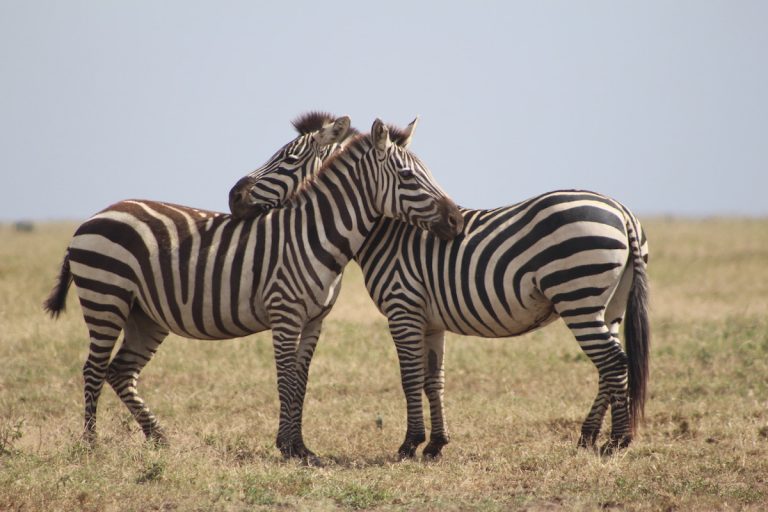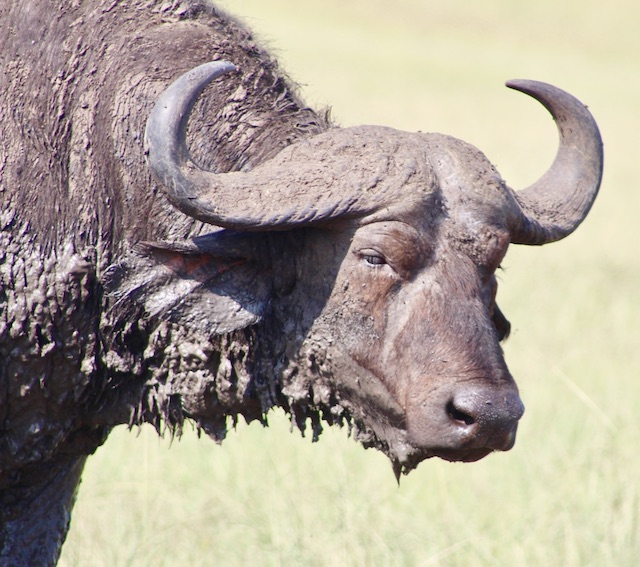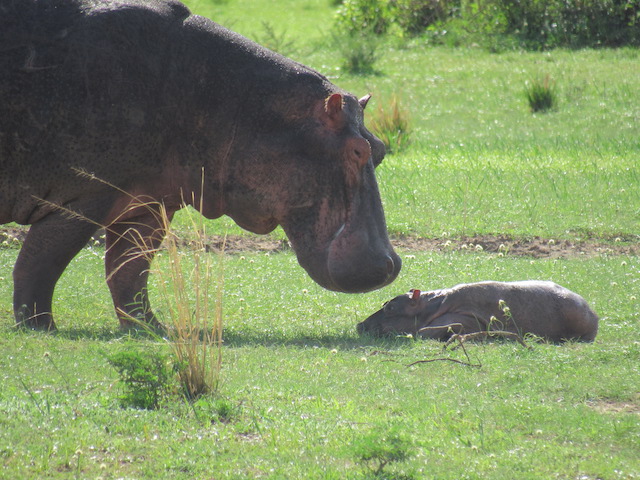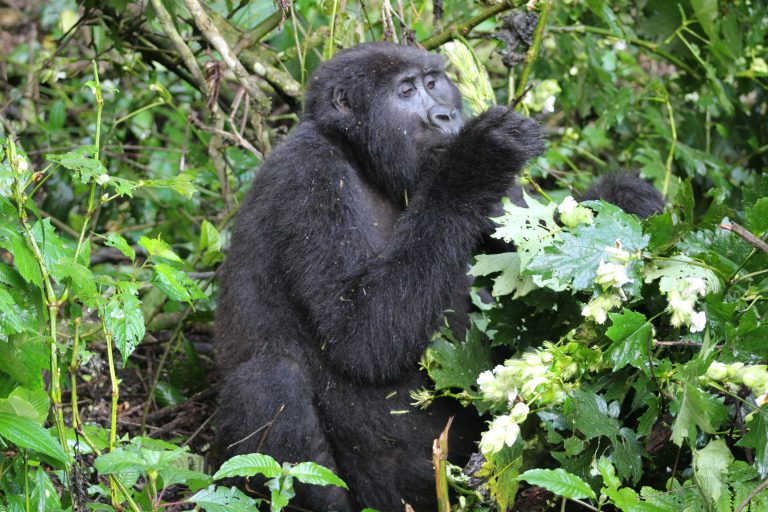Take this exciting Birding Uganda and Gorilla trekking Safari. Our first birding site in Uganda will be the Mabamba wetland on the fringes of Lake Victoria as we search for the Shoebill. Our first national park to visit will be Murchison Falls National Park which was voted No. 9 best birding spot in Africa, home to over 450 bird species and 76 mammal species.
Next on our birding Uganda and gorilla safari will be Budongo forest. It protects the largest natural forest area in East Africa with over 350 bird Species and home to several primates including Chimpanzees. Semuliki National Park protects an eastern extension of the vast Ituri Forest of Democratic Republic of Congo and is one of the richest areas for forest birds in Africa.
This birding Uganda and gorilla tour will continue to Kibale National Park, a large block of rain forest that offers great birding and home to 13 primate species with Chimpanzees as the highlight. We will then proceed to Queen Elizabeth national park known for its varied biodiversity and over 600 bird species.
Our highlight on the birding Uganda and gorilla tour will be the Bwindi impenetrable forest which has a record of 23 of Uganda’s 24 Albertine Rift endemics and an opportunity to do a gorilla trek. The Uganda birding and gorilla safari will end with Mgahinga National Park. It is the smallest national Park in Uganda hosting over 180 bird species including the Albertine Rift Endemics.
Key Bird Species – Birding Uganda and Gorilla Trekking Safari
Shoebill, Papyrus gonolek, Malachite Sunbird, Purple-breasted sunbird, Regal sunbird, Scarlet-tufted Sunbird, Rwenzori Turaco, Black billed turaco, White crested turaco, Archer’s Robin Chat, Cape Robin, White-starred Robin, Puvels Illadopsis, Chestnut-capped Flycatcher, African Green Broadbill, Handsome Francolin, Rwenzori Batis, Collared Apalis.
Dusky Crimsonwing, Yellow-billed Barbet, Bar-tailed Trogon, Lagden’s Bush-Shrike, Waller’s Starling, Dwarf Honey-Guide, Oriole Finch, Doherty’s Bush-Shrike, Red-headed Malimbe, Grey-headed Sparrow, Dusky Twinspot, Green-bakced Twinspot, Think-billed and Streaky Seedeaters, Rwenzori Nightjar, Cassin’s Hawk Eagle, Toro-Olive Greenbul, Black Bee-eaters, white faced Go-away birds, African Finfoot
Bird Habitats visited on this Birding Uganda and Gorilla Safari
Forest, Acacia Savanna, grassland, agricultural lands, Riverine Forest, Moist woodland, Borassus Palm Savannah, Papyrus Swamps, Lakes and rivers
Optional Activities
- Golden Monkey trekking
- Chimpanzee trekking
Itinerary for Birding Uganda and Gorilla Trekking Safari
Day 1: Arrive in Uganda for the Birding Uganda and Gorilla Safari
On arrival at Entebbe international airport you will be received by a representative of Kagera Safaris to start your birding Uganda and gorilla safari. Depending on your time of arrival, you have an opportunity to bird Botanical gardens. Otherwise you check into your hotel and prepare to start your birding tomorrow.
Journey time – 20 minutes
Day 2: Birding in Mabamba Wetland Swamp & Transfer to Masindi
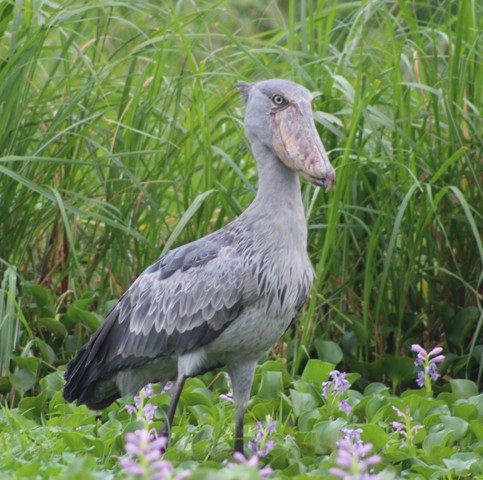 After an early breakfast depart to Mabamba Swamp Wetland on the fringes of Lake Victoria – 2nd biggest fresh water body in the world.
After an early breakfast depart to Mabamba Swamp Wetland on the fringes of Lake Victoria – 2nd biggest fresh water body in the world.
In Mabamba swamp, you will take a motorised canoe with the area site guide in search of the incredible Shoebill. It is often seen standing in the mashes waiting to hunt or flying in the air above the papyrus plants.
There are also other variety of water birds like; African Jacana, White-winged Terns, African Purple Swamphen, Purple Heron, Blue-breasted Bee-eater. The Pied Kingfisher, Malachite Kingfisher, Winding Cisticola, Red-billed Fire-finch, White-faced whistling duck, Long-toed Lapwing, African Pied Wagtail, Saddle billed Stork. The Cape wagtail, Fan-tailed Widowbird, Yellow-billed Duck Long-toed plover, African Fish Eagle and African Marsh Harrier, Swamp Flycatcher etc.
Journey time – 1 hour and 4 hours to Masindi
Day 3: Birding the Royal Mile in Budongo forest
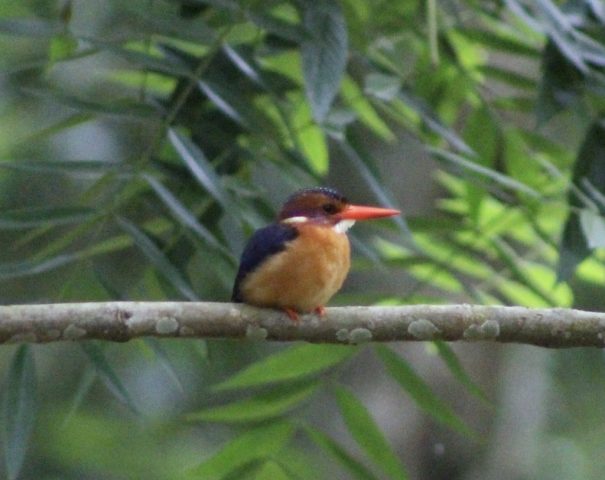 Today we continue the birding Uganda and gorilla safari in the rich Budongo forest. Part of the forest is located in Murchison falls national park at Kaniyo Pabidi. The other part is located outside of the national park as a forest reserve known as Budongo forest. This forest is home to various primates including Chimpanzees and several tree species.
Today we continue the birding Uganda and gorilla safari in the rich Budongo forest. Part of the forest is located in Murchison falls national park at Kaniyo Pabidi. The other part is located outside of the national park as a forest reserve known as Budongo forest. This forest is home to various primates including Chimpanzees and several tree species.
After an early breakfast and with packed lunch, we will leave for the royal mile. This is a full day’s birding along the forest road and ending at the forest Bridge depending.
Together with the site guide and your bird guide, you will look out for some of the exotic bird species. These include; Ituri Batis, Nahan’s francolin, Grey and Yellow longbills, Yellow-footed Flycatcher, Chocolate backed Kingfisher, Black-capped Apalis, Brown twin spot. The White spotted fluff tail, Jameson’s wattle eye, White breasted negro finch, Grey-headed Olive-back, Grey headed sunbird, Red headed bluebill, Green sunbird, Little green sunbird etc.
Day 4: Birding to Murchison Falls National Park – Birding Uganda and Gorilla Safari
After an early breakfast at your hotel, your bird guide will pick you and you start your birding journey to Uganda’s largest and oldest National Park. You will have birding stops in key areas along the way. You will drive to the Top of the waterfalls to have a view of the falls from the top.
Journey time – 2 hours
Day 5: Birding Murchison falls national park – Birding Uganda and Gorilla Safari
We have an early morning breakfast and after go birding. Start with the boat safari looking for water birds on the Nile and later a game drive.
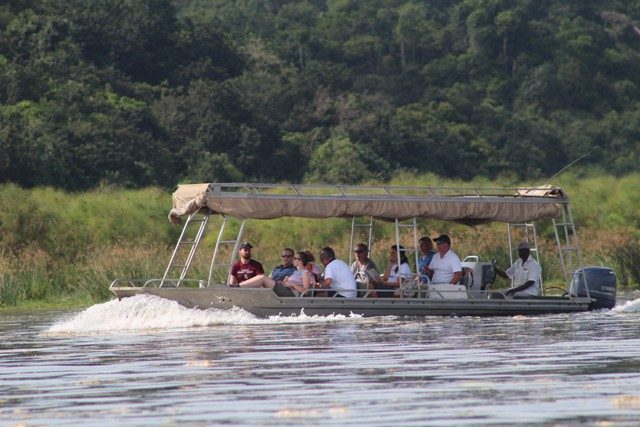 Some of the birds we aim for on the boat to the delta include; the Shoebill, Great White and Pink-backed Pelicans, African Water Rail, Allen’s Gallinule, Black Crake. The African Crake, Grey-crowned Crane, Southern Pochard, The Egyptian, African Pygmy, and the Spur-winged Goose, Saddle-billed stork, Open-billed stork. The Yellow-billed stor kand Marabou stork. More birds include; the Little and Dwarf Bitterns, Night Heron, Black Heron, Goliath Heron, Purple Heron, Green Backed Heron, Little Grebe, Common Squacco Heron, Great White Egret. The Great and Long-tailed Cormorants, African and Eurasian Spoonbills, the Lesser Flamingo, Lesser Jacana, African Finfoot, Painted Snipe, Wattled Plover.
Some of the birds we aim for on the boat to the delta include; the Shoebill, Great White and Pink-backed Pelicans, African Water Rail, Allen’s Gallinule, Black Crake. The African Crake, Grey-crowned Crane, Southern Pochard, The Egyptian, African Pygmy, and the Spur-winged Goose, Saddle-billed stork, Open-billed stork. The Yellow-billed stor kand Marabou stork. More birds include; the Little and Dwarf Bitterns, Night Heron, Black Heron, Goliath Heron, Purple Heron, Green Backed Heron, Little Grebe, Common Squacco Heron, Great White Egret. The Great and Long-tailed Cormorants, African and Eurasian Spoonbills, the Lesser Flamingo, Lesser Jacana, African Finfoot, Painted Snipe, Wattled Plover.
After the experience on the boat, you transfer to the car and bird in the Savannah in search for; Secretary Bird, Northern Carmine and Red-throated Bee-eaters, Giant, Pied, Stripped. The Chestnut-bellied, Blue-breasted, Woodland and the African Pygmy Kingfishers, African Rock Martin; Lesser Stripped, Ethiopian, Angola, Red-rumped and Rufous-chested Swallow, Nightingale, Rock Thrush, Pied Wheatear. The Whinchat, White-fronted Black Chat, Sooty Chat. Common Bulbul, Cameroon Sombre and Yellow-throated Greenbul, the Black, White-breasted, and Red-shouldered Cuckoo Shrikes, the Black and Penduline Tits, Black-lored, and Brown Babblers, Nubian Woodpecker, Cardinal Woodpecker, Brown-backed Woodpecker, Lesser Honeyguide, Scaly-throated Honeyguide, and many more.
Day 6: Birding the Escarpment and transfer to Kibale forest National Park
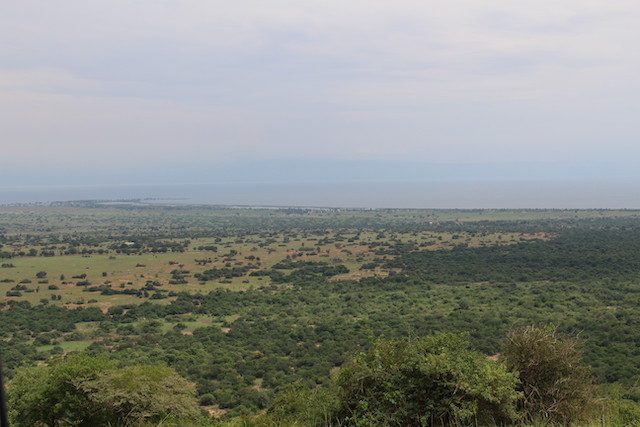 Today morning after breakfast, we transfer to Kibale forest with a stopover birding the Butiaba Escarpment. Look out for; Beautiful sunbird, Black-billed Barbet, Grey-winged Pythilia, Buff-bellied Warbler, Northern Crombec, Cinnamon-breasted Warbler, Whin chat, Flappet Lark, Little weaver, Tawny-flanked Prinia, Lesser blue-eared Starling, Chestnut-crowned Sparrow Weaver, Marsh Tchagra, Copper Sunbird, Green-backed Eremomela, Long crested eagle, Foxy Cisticola, etc.
Today morning after breakfast, we transfer to Kibale forest with a stopover birding the Butiaba Escarpment. Look out for; Beautiful sunbird, Black-billed Barbet, Grey-winged Pythilia, Buff-bellied Warbler, Northern Crombec, Cinnamon-breasted Warbler, Whin chat, Flappet Lark, Little weaver, Tawny-flanked Prinia, Lesser blue-eared Starling, Chestnut-crowned Sparrow Weaver, Marsh Tchagra, Copper Sunbird, Green-backed Eremomela, Long crested eagle, Foxy Cisticola, etc.
Kibale forest is home to 13 primate species with the highlight being the chimpanzees which are easily seen while on chimp trekking.
Journey time – 6 hours
Day 7: Kibale forest birding for Green breasted Pitta
We will have an early morning breakfast and leave the lodge with our packed lunch. Our morning focus will be to search for the elusive Green breasted pitta. This sought after bird is rather difficult to sight in the forest but with guidance of the site guide and rangers we hope to find it.
As we search for the Green breasted Pitta, we will look out for other bird species like; the Western bronze-napped Pigeon, Great blue Turaco, Yellow-throated Nicator, White-headed Wood hoopoe, Red Headed malimbe, Yellow-spotted barbet. The Dusky-blue Flycatcher, Grey-winged Robin, Blue shouldered Robin Chat, Yellow-spotted Barbet, White-naped Pigeon, Green-breasted Pitta, Red-chested Flufftail, African Pitta, Joyful Greenbul. The Cabanis Greenbul, Grey-throated Flycatcher, Masked Apalis, Nahan’s Francolin, Tiny Sunbird, White-collared Oliveback and many more.
Day 8: Chimpanzee trekking and birding Bigodi swamp
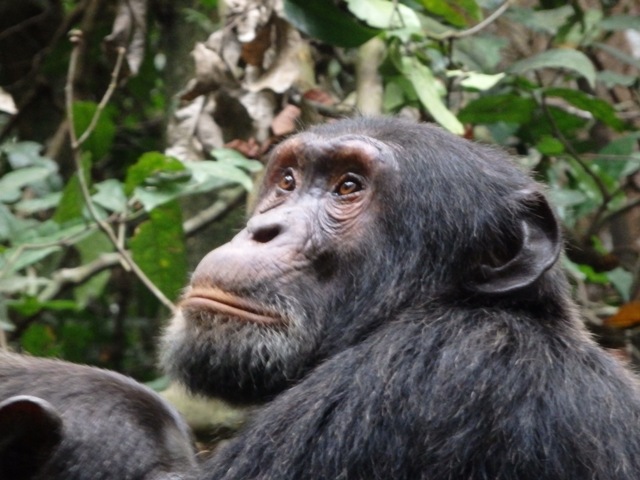 This morning we have an opportunity to trek the chimpanzees deep in Kibale forest for an experience of a life time. Your driver guide will transfer you to the briefing point. After briefing, you will divided in groups and given a ranger guide to guide you in the forest. In addition you will sight several butterflies, plants and many other primates.
This morning we have an opportunity to trek the chimpanzees deep in Kibale forest for an experience of a life time. Your driver guide will transfer you to the briefing point. After briefing, you will divided in groups and given a ranger guide to guide you in the forest. In addition you will sight several butterflies, plants and many other primates.
In the afternoon, we bird Bigodi wetland for species we might have missed in the forest. This is a community initiative conserving the buffer zone to the forest, proceeds go to different community programs.
Day 9: Birding to Semuliki national park – Birding Uganda and Gorilla Trekking Safari
Today after breakfast we bird to Semuliki national park searching for central African species only found here in East Africa. We shall have several stopovers birding nearby forest patches and swampy areas for different bird species.
Journey time – 3 hour
Day 10: Birding Kirumila trail in Semuliki national park
Bird Semuliki forest for central African species of Congo’s Ituri forest. Semuliki forest is a continuation of Congo’s ituri forest. You have an opportunity of visiting both the ‘female’ and ‘male’ hot springs found within the park.
Some of the species we will look out for include; the Congo Serpent Eagle, Grey-throated Rail, Nkulengu Rail, Long-tailed Hawk, Spot-breasted Ibis, Yellow-throated Nicator. The Northern Red-chested Owlet, Western Bronze-naped Pigeon, Black-collared Lovebird, White-bellied Kingfisher, Red-rumped Tinkerbird. The Lyre-tailed Honeyguide, Zenker’s Honeyguide, White-throated Blue Swallow, Bate’s Nightjar, Yellow-throated Cuckoo.
Orange-tufted Sunbird, Black-winged Oriole, Lemon-bellied Crombec, Rufous-sided Broadbill, Icterine Greenbul, Swamp Palm Bulbul, Crested and Blue-billed Malimbes, Fiery-breasted Bush-shrike, Pale-fronted Negrofinch, Piping, Red-billedWhite-crested, Black-casqued, Wattled and White-thighed Hornbills.
Day 11: Birding to Queen Elizabeth NP – Birding Uganda and Gorilla Trekking Safari
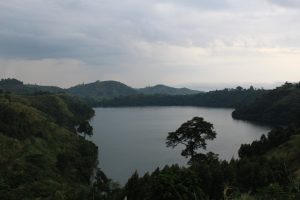 Today after an early breakfast we start the trip to Queen Elizabeth national park birding along the way. You will have stopovers for both birding and photography of the beautiful scenery. Drive past several crater lakes, homesteads, farms and later with the Rwenzori mountains ahead as you drive.
Today after an early breakfast we start the trip to Queen Elizabeth national park birding along the way. You will have stopovers for both birding and photography of the beautiful scenery. Drive past several crater lakes, homesteads, farms and later with the Rwenzori mountains ahead as you drive.
The road through this crater lakes regions is not tarred, sometimes it is impossible to use during the rain season. In case it rains right before your set off, your guide may advise a different route on a more stable road. Because you will be having several stopovers for pictures and birding, you can expect to arrive at your lodge later that afternoon. Have some rest and prepare to start early the next day.
Journey time – 3 hours
Day 12: Birding Imaramagambo forest – Birding Uganda and Gorilla Trekking Safari
We start early for a whole day birding in the park leading to Maramagambo Forest. We will have birding from the lodge towards Imaramagambo forest.
Bird species we expect to sight include Whinchat, Common Redstart, White-fronted Black Chat, Sooty Chat, Cameroon Sombre Greenbul, Yellow-throated Greenbul, the Black, White-breasted, and Red-shouldered Cuckoo Shrikes. The Black and Penduline Tits, Nubian Woodpecker, Cardinal Woodpecker, Brown-backed Woodpecker, White-tailed and Red-tailed Ant-thrushes, Brown Illadopsis, Shining-blue Kingfisher, Brown-eared Woodpeckers, Least Honeyguide, Grey Greenbul, Brown-chested Alethe, and many others.
Day 13: Birding to Bwindi Impenetrable forest
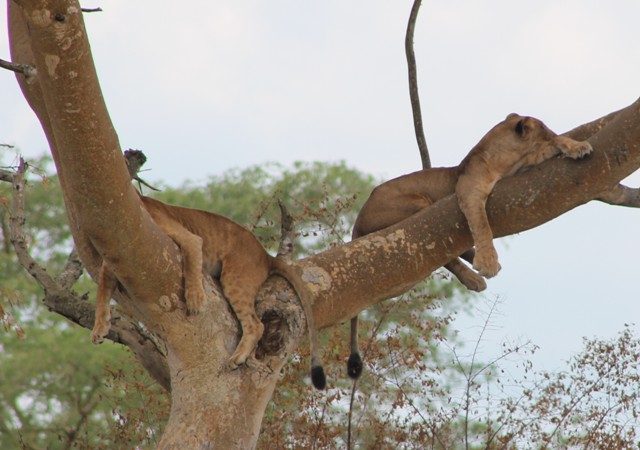 Transfer to Bwindi impenetrable national park with birding stopovers. You might have opportunity of sighting birds you could have missed the previous day.
Transfer to Bwindi impenetrable national park with birding stopovers. You might have opportunity of sighting birds you could have missed the previous day.
In addition to the birding, there are opportunities of sighting the famous tree climbing lions of Ishasha. After a short game drive you proceed to Bwindi impenetrable national park.
Journey time – 3 hours
Day 14: Gorilla trekking – Birding Uganda and Gorilla Trekking Safari
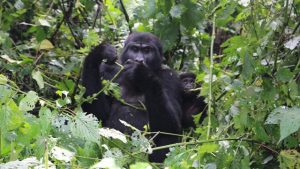 Mountain Gorilla trekking – a once in life opportunity and highly recommended. Today morning you will be transferred to the briefing point by your tour guide. On arrival at the briefing point, you will be divided into different groups which will trek different gorilla families with a ranger guide for each group.
Mountain Gorilla trekking – a once in life opportunity and highly recommended. Today morning you will be transferred to the briefing point by your tour guide. On arrival at the briefing point, you will be divided into different groups which will trek different gorilla families with a ranger guide for each group.
You will start your trek into the forest depending on location of the family you are to trek. It can take anything from a few minutes to several hours before sighting gorillas. You are allowed 1 hour to stay in the presence of the gorillas before starting the trek back to the starting point.
Day 15: Birding Buhoma Sector – Birding Uganda and Gorilla Trekking Safari
Today after an early breakfast, we get back into the forest for birding. The site guides usually helps with location of the different unique birds hence increasing chances of locating them.
Look out for; Stuhlmann’s Starling, Narrow-tailed Starling, Waller’s Starling, Montane Oriole, African Golden Oriole, Strange Weaver, Brown-capped Weaver, Dusky Crimsonwing, Yellow-bellied Waxbill, Magpie Mannikin, Yellow-crowned Canary. The Thick-billed Seedeater, Streaky Seedeater, African Green Broadbill, Oriole Finch, Mountain Buzzard, Ayre’s Hawk Eagle, Handsome Francolin, Barred Long-tailed Cuckoo, African Wood Owl.
More species; Bar-tailed Trogon, Cinnamon-chested Bee-eater, (Western) Bronze-naped Pigeon, Red-chested Owlet, Tullberg’s Woodpecker, African Broadbill, Western Green Tinkerbird, African Green Broadbill. The Lagdens Bush-Shrike, Petit’s Cuckoo-Shrike, Grey Cuckoo-shrike, Toro Olive-Greenbul, Ansorge’s Greenbul, White-bellied Robin Chat, Olive Thrush, White-tailed Ant-Thrush, Grauer’s Rush-warbler, Neumann’s Warbler and Red-faced Woodland Warbler.
Day 16: Birding to Ruhija via ‘the Neck’ of the forest
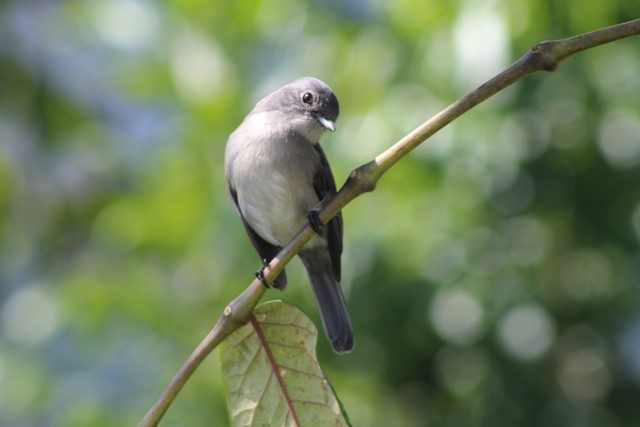 Early morning, make your way towards ‘the neck’, a stretch forest linking Buhoma to Ruhija. Look out for; Yellow-billed Waxbill, Black Saw-wing, Chubbs’ Cisticola, Grey Apalis, Petit’s Cuckoo Shrike, Black Bee-eaters, Cinnamon-chested Bee-eaters. The Cuckoo Shrike, Mackinnon’s Fiscal, Little Grey Greenbuls, Chestnut-throated Apalis, Red-throated Martin, Yellow White-eye, Yellow-bellied Kite, Speckled-rumped Tinkerbirds.
Early morning, make your way towards ‘the neck’, a stretch forest linking Buhoma to Ruhija. Look out for; Yellow-billed Waxbill, Black Saw-wing, Chubbs’ Cisticola, Grey Apalis, Petit’s Cuckoo Shrike, Black Bee-eaters, Cinnamon-chested Bee-eaters. The Cuckoo Shrike, Mackinnon’s Fiscal, Little Grey Greenbuls, Chestnut-throated Apalis, Red-throated Martin, Yellow White-eye, Yellow-bellied Kite, Speckled-rumped Tinkerbirds.
African Stonechat, Grey Cuckoo Shrike, Stripe-breasted Tit, Montane-masked Apalis, Red-faced Woodland, Montane Yellow Warbler. The Regal Sunbird, Northern Double-collared Sunbird, White-tailed Blue Flycatcher, Yellow-whiskered Greenbul, Crested Guinea Fowl, Lead-colored Flycatcher, Black-necked Weaver, Red-bellied Paradise Flycatcher, Yellow-spotted Barbet, African Harrier Hawk.
Journey time – 2 hours
Day 17: Birding Mubwindi Swamp trail in Ruhija Sector
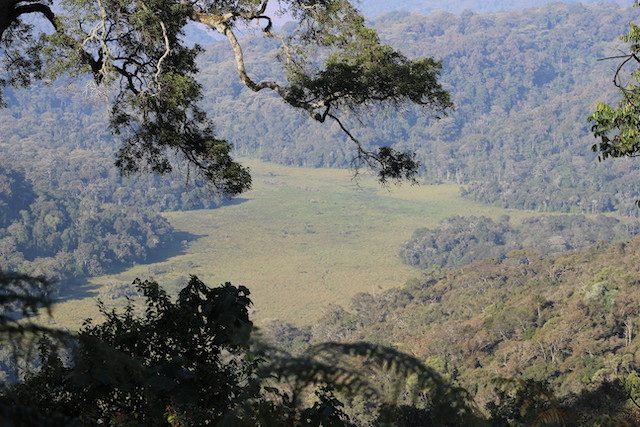 Today prepare to bird the entire day in Ruhija sector of Bwindi impenetrable national park on the Mubwindi swamp trail. Birds in Ruhija are generally easy to see but the area is also considerably steep with lots of hiking as you search for birds.
Today prepare to bird the entire day in Ruhija sector of Bwindi impenetrable national park on the Mubwindi swamp trail. Birds in Ruhija are generally easy to see but the area is also considerably steep with lots of hiking as you search for birds.
You will carry a picnic lunch and take a trail to Mubwindi swamp that promises some of the most difficult of all rift endemic species; Regal Sunbird, Archer’s Robin-Chat, Grauer’s Rush warbler, African green broadbill, Caruther’s cisticola, Handsome francolin, African Hill babbler, Banded Prinia, Shelley’s Crimsonwing, Dohertys Bushrike, Collared Apalis and others.
Return to the hotel later that evening, hopefully you will sight some of the Rwenzori night jars on the forest roads as you drive back.
Day 18: Birding to Mgahinga Gorilla national park
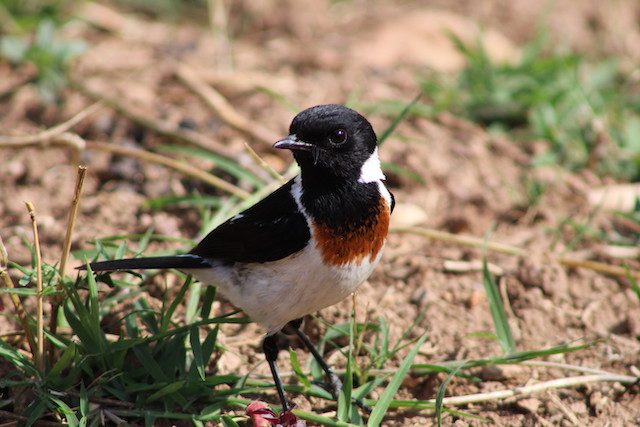 Transfer to Kisoro early morning after breakfast birding along the way. Bird the papyrus areas at Lake Bunyonyi out flow and Echuya forest for some Albertine rift endemics that we might have missed in Bwindi impenetrable forest.
Transfer to Kisoro early morning after breakfast birding along the way. Bird the papyrus areas at Lake Bunyonyi out flow and Echuya forest for some Albertine rift endemics that we might have missed in Bwindi impenetrable forest.
Birds in Echuya forest include; Dwarf Honeyguide, Red-throated Alethe, Grauer’s Rush Warbler, Red-faced Woodland Warbler, Grauer’s Warbler, Collared Apalis, Yellow-eyed Black Flycatcher, Rwenzori Batis, Strip-breasted Tit, Regal Sunbird, Strange Weaver, Brown-capped Weaver, Strange Weaver etc.
Journey time – 3 hour
Day 19: Birding in Mgahinga Gorilla national Park
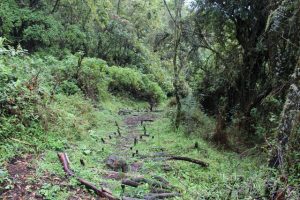 Mgahinga gorilla national park is home to over 180 bird species. This park with beautiful vegetation will reward you with more than birding. You shall traverse a variety of montane habitats along the excellent Gorge trail as you bird your way.
Mgahinga gorilla national park is home to over 180 bird species. This park with beautiful vegetation will reward you with more than birding. You shall traverse a variety of montane habitats along the excellent Gorge trail as you bird your way.
Some of the bird species we look out for include the Rwenzori Turaco, Dwarf Honeygude, Kivu Ground Thrush, Rwenzori Double-collared, Regal and the Purple-breasted Sunbirds, Archer`s Robin chat, cinnamon Bracken and Mountain Yellow Warblers, the Dusky and much Sought after Shelley’s Crimson-wing and many more.
Day 20: Transfer to Entebbe – Birding Uganda and Gorilla Trekking Safari
After a fulfilling birding experience ticking off several Albertine rift endemics, you start the journey to Entebbe. This is a whole days trip with short birding stops.
Journey time – 9 hour
Day 21: End of Uganda birding and Gorilla safari
Today marks the end of your Uganda birding safari. We hope you had an amazing time birding Uganda in the various national parks and forest. We look forward to hosting you again for another region in Uganda.
What to bring
- Long trouser and long sleeved tops
- Insect repellent
- Garden gloves (for gorilla trekking)
- Sun hut
- Rain jacket
- Waterproof hiking shoes
- Day pack to carry lunch and water
- Binoculars
- Camera
Tour includes
- Ground transport
- Park entrances
- Birding fees
- Boat trips
- Bottled water in the safari vehicle
- Full board accommodation for two nights
- Service of an English-speaking driver guide
- All mentioned activities except for the optional ones
Tour excludes
- Extras at the accommodation i.e. drinks, telephone, laundry etc.
- Tips to porters and driver/ guide
- Insurance
Other Uganda Birding safaris
8 Days Uganda Birding in Murchison falls NP and Budongo Forest
14 Days Birding Uganda Safari for Albertine Rift Endemics
15 Days Uganda Forest Birding Safari

